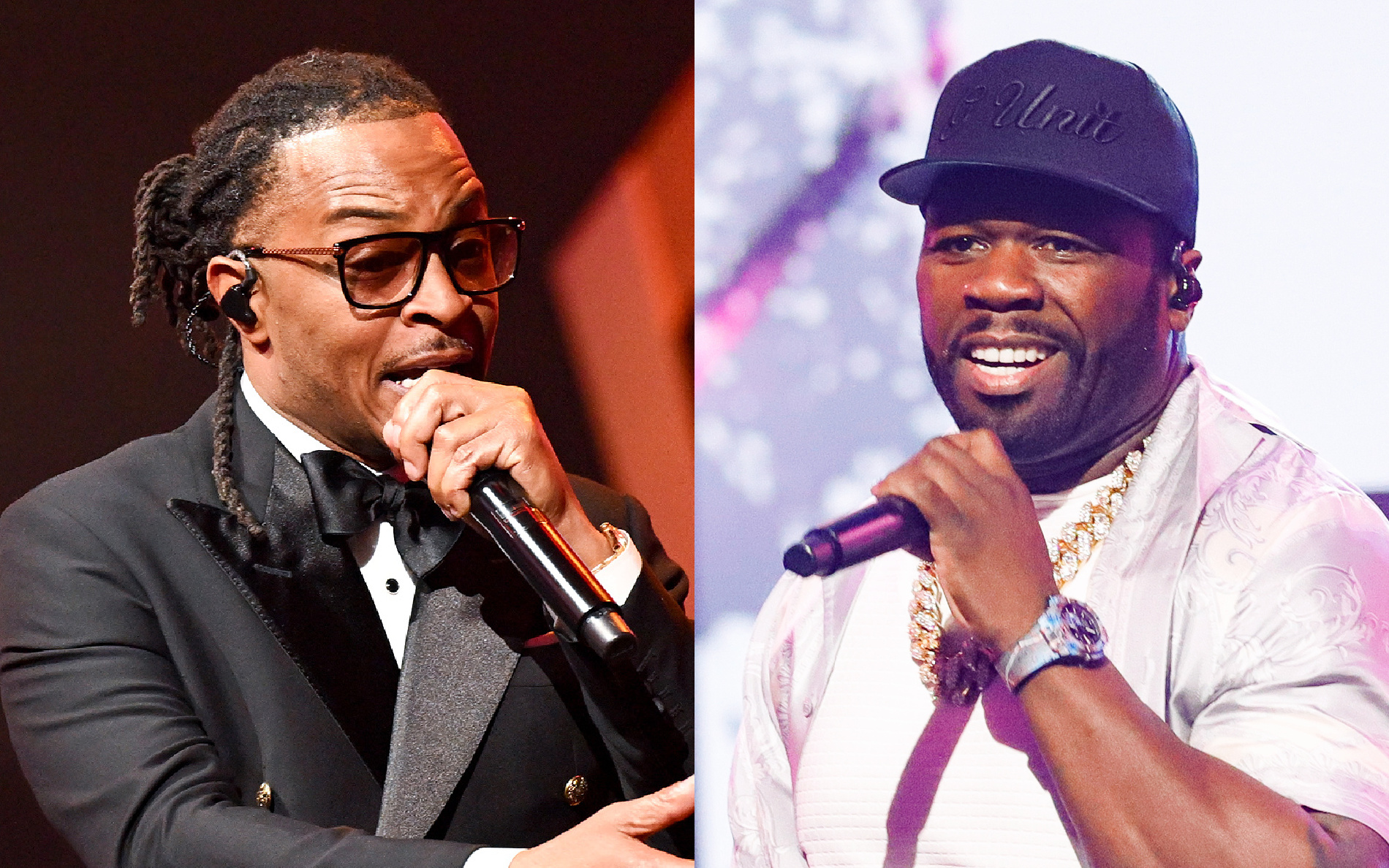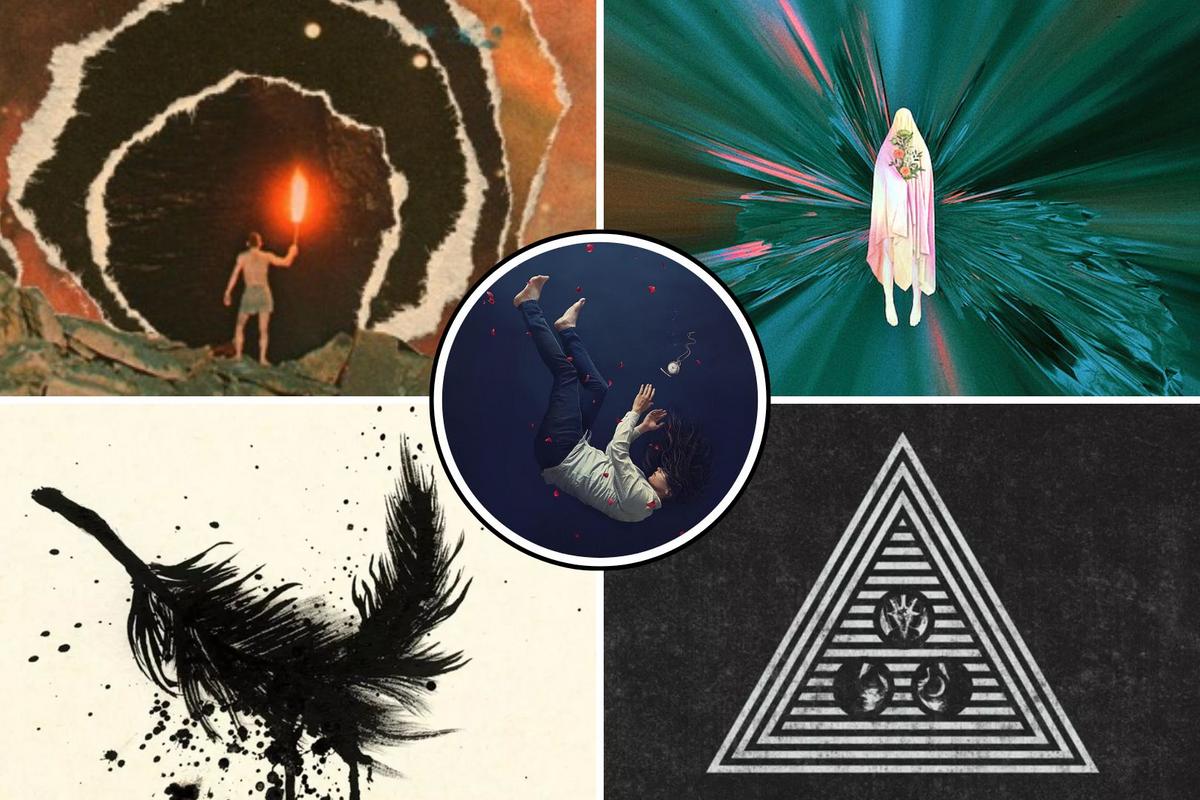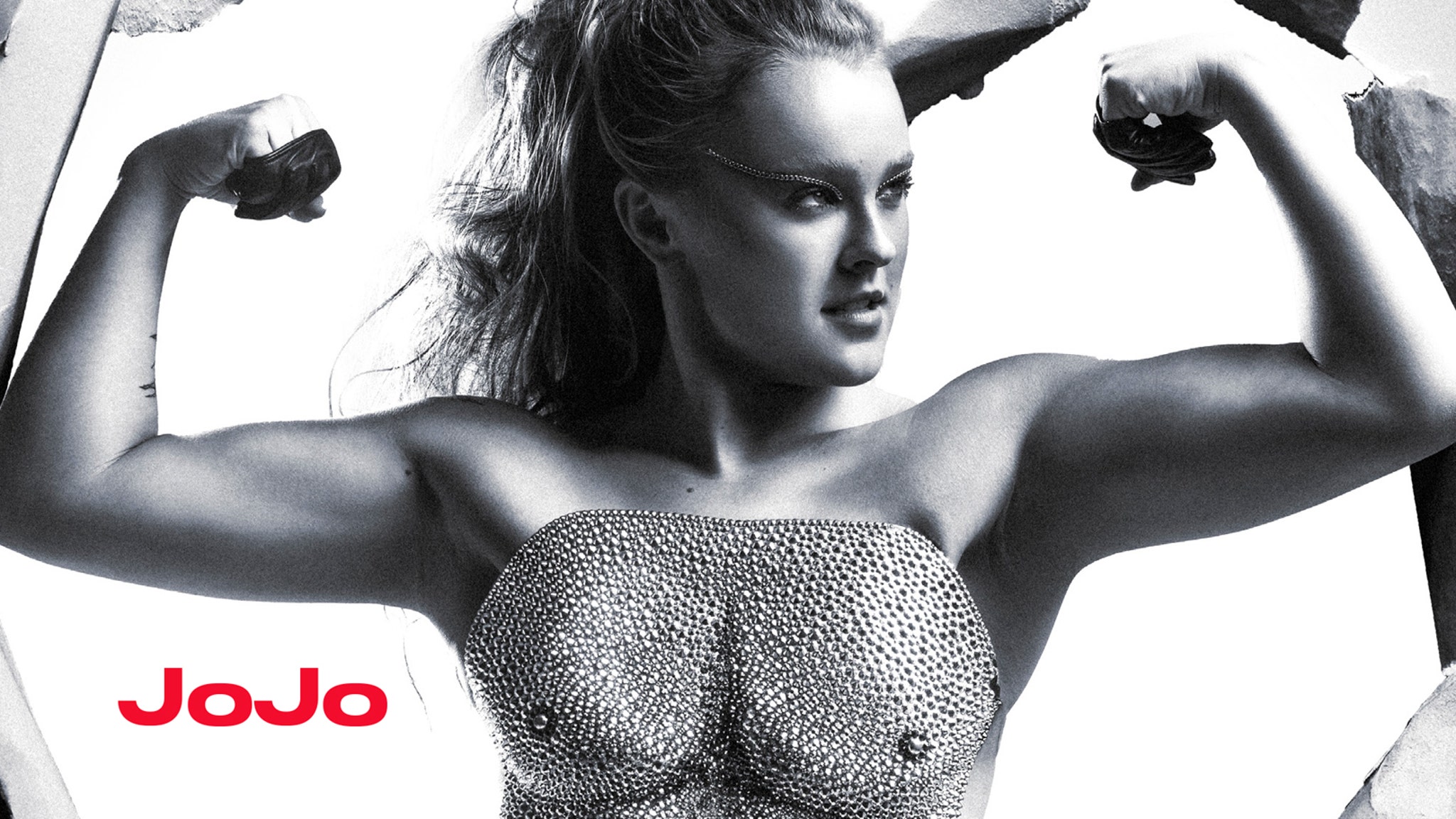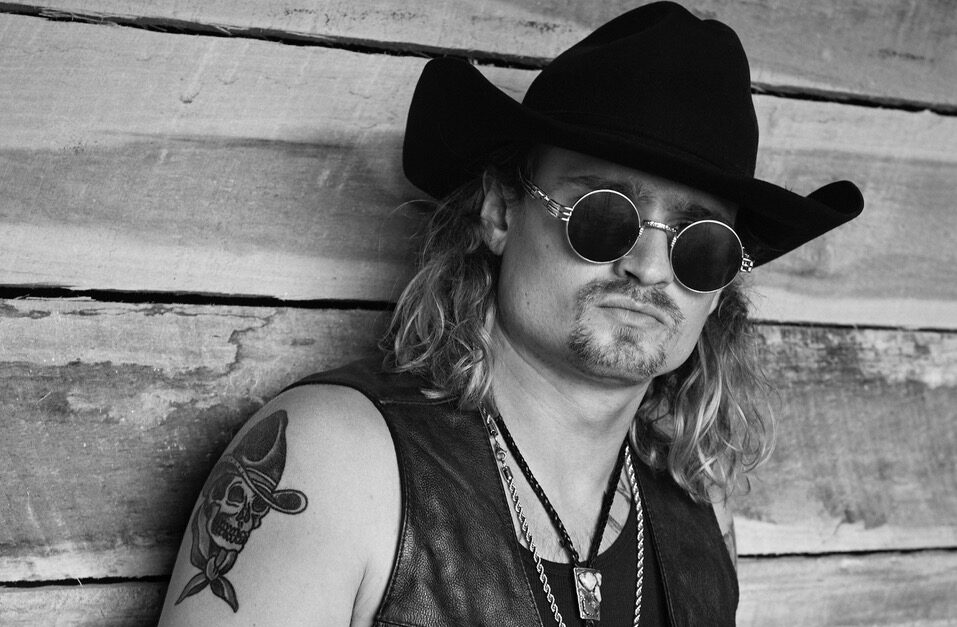
Cowboy Killer is hard to miss. Backstage at Denver’s Mission Ballroom, his thick, Appalachian accent soars over the more Midwestern diction prevalent in the Rocky Mountain area. Sporting reflective shades likely found at a truck stop, long dirty-blonde hair, a cowboy hat, and Colorado Rockies jersey, he’s the furthest thing from a “rapper” stereotype. But once he grabs the mic, it’s game on.
Cowboy Killer, born Paul Mifsud in Southeast Ohio, is currently on tour with Slumerican founder/former Shady Records artist Yelawolf, who’s more or less taken him under his wing. Now an official signee of the label, Cowboy Killer has been locked in the studio with Wolf and pumping out country-flavored hip-hop songs like “Day Dreams” and “Bob Barker,” or what he’s dubbed “trap grass.”
More from Spin:
Linkin Park Unveil New Song, Expand Tour
James’ Tim Booth Talks U.K. No. 1 Album, Touring With Johnny Marr
Weird Al Goes ‘Bigger And Weirder’ For Extensive 2025 Tour
Simply put, he’s finally living his dream. Raised by a single mother, Cowboy Killer grew up on a farm, where chores included taking care of the family’s livestock. Somewhere along the way, his sister introduced him to hip-hop by the likes of Eminem, 2Pac, Mobb Deep, and Nas.
Serendipity became a theme of Cowboy Killer’s life. One thing led to another, and he linked up with Yelawolf’s manager Edward Crowe. The rest, as they say, is history. SPIN caught up with Cowboy Killer to discuss his road to Nashville, evolution as an artist, and what’s up next.
Do you think your star is on the rise?
I’ve been grinding for 11 years, so I hope it’s getting somewhere. My mama’s proud, my hometown’s proud, my community around here is proud. I’m really doing this to be able to just release this creative energy I have pent up. I don’t think I do it for the same reasons I did it before. When you’re a kid, you wanna be a rapper and you just want money, power, fame, and girls. Now, I do it because I realized I had to do it. I had to let this creative energy out. It’s a blessing to have people listening to the music because I know a lot of people who create—they’re amazing artists, but they don’t really get the love or the flowers that I’ve received lately.
Music should unite people. Sounds like you figured that out early. What was your household like growing up?
I grew up in Southeast Ohio. I was surrounded by country music and classic rock, but my sister introduced me to hip-hop when I was young. I got into Lil Wayne, 50 Cent, Eminem, Mobb Deep, Nas, and JAY-Z at about 8, 9 years old. First, it was [50 Cent’s] Get Rich or Die Tryin’ and then [2Pac’s] All Eyez on Me and Ready to Die by Biggie. Hip-hop was always something I gravitated to, and people that I looked up to were usually rappers or sports stars. I didn’t grow up in a house of musicians. I didn’t grow up in a musical household, but my mother was extremely musical. You would say a phrase around my mom and she would know a song that had that lyric. She’d be able to spitball song after song after song, so I definitely get my musical ability from her. But no, I didn’t grow up taking piano lessons. I was in a choir, but they kicked me out of it. I was just getting into too much trouble.
What did you do?
I just wouldn’t shut the fuck up. We’d just be talking all the time.
Did you go to Catholic school?
No, I went to public school. The year after I got kicked out of choir, they cut the choir. So my school didn’t have funding for it anymore. I grew up in a BFE town. You know where BFE is?[Laughs] I’ve heard of it. What was your school called?I went to Buckeye Trail High School in Lore City. Famously, a deer ran into our front door and everyone was like, “Cool.” It was just funny. People would just show up in their camo and blood all over them. I had ammunition fall out of my pocket one time in sixth grade at the pencil sharpener, and Mr. Wheeler just looked at me like, “Well, are you going to pick them up or what?” It was just a different way of life.
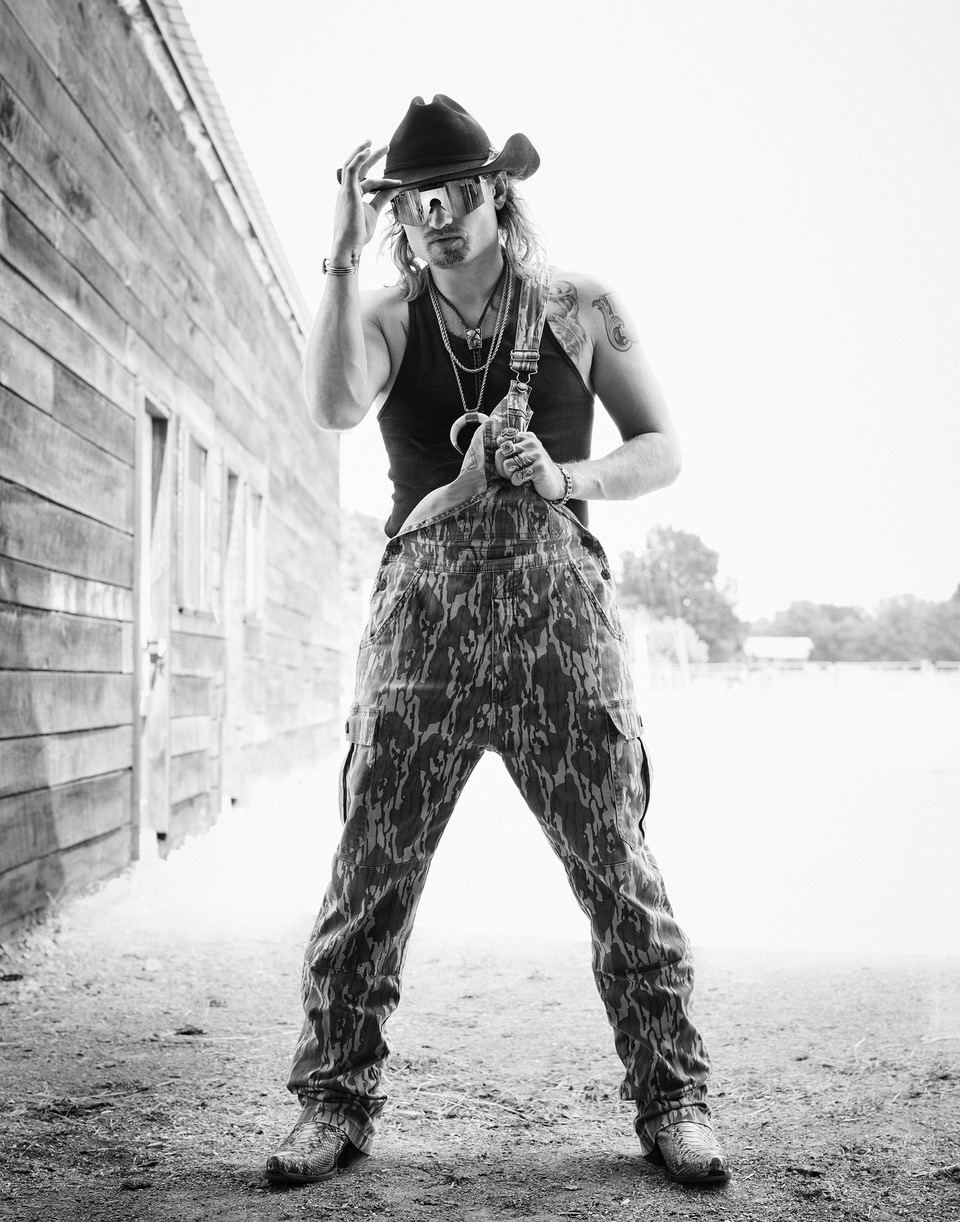
You’ve kind of got your own musical gumbo going on. What did you call it? “Trap grass?”Yes, trap grass. Everybody’s trapping something, man.
When did you come up with this?
I was definitely in New Mexico and got the idea that I wanted to make a project called Trap Grass. It was more or less like, “This is not country rap. This is not strictly hip-hop. This is not strictly country. This is not strictly bluegrass.” It came to me because the name made a lot of sense to me.
Why?
Because, well, I was a drug dealer. It made a lot of sense that if I was selling weed and making country and hip-hop music that I would probably form it all together into one thing. But the biggest thing for me was a protest toward people who don’t make hip-hop music and country music with the integrity that it deserves because I feel like country music and hip-hop are so similar. The stories and topics are similar—fatherlessness, drug use, alcoholism, poverty, and despair—just being told by different people. People think hip-hop and country are so polar opposite. When I was looking at it, I was like, “This is the same shit to me.” Obviously, the sounds and the tales being told are different. I don’t really want to put a genre on this music unless I call it my own and I just wanted to call it “trap grass.” Not everything I make is trap grass. Some things are strictly country. Sometimes I’m making an R&B song or a ballad.
What’s your relationship with Yelawolf like?
We have a lot in common, but we also have a lot of differences. I think the beauty of our relationship thus far has been that Wolf has highlighted me and given me the opportunity to compete with someone who has the knowledge, stature, and wisdom that he has. I wanted to have some sort of person who I could play these records for and be like, “Hey, I know you know what good music is and know what this is.” So that’s been a blessing. It’s been all love. It’s great to have a team in my corner that understands the music that I make. I don’t think anybody really understands how to go about this business, but we’re all learning and figuring it out. And as a team, we’re really, really excited about the releases we got coming.
How did you initially connect?To make a long story short, I ended up going to a residential treatment program when I was 17, and I met a guy there.
What were you using?
My drug of choice was pills. I would take Vicodins. I was young and just kind of getting into trouble more. I didn’t think I was an addict or anything like that. I think I have an addictive personality. But I was just dabbling in things really young. I was smoking cigarettes at 11 years old. That’s not normal shit. You know you shouldn’t be partaking in those things, but I was curious and unmanageable. My mother was incredible, but she just didn’t know how to raise a kid without a father. She did the damn best she could, but I was just trouble. I was just trying to get into stuff, hanging around with older people and just doing what they do.
So you started selling drugs?
I was probably 15 when I started using and selling it. But I got caught in school with some paraphernalia. They would single me out a lot of times because I moved schools a couple of times and would stand out in new places. But I definitely ended up in a situation where I didn’t have a steady role model or someone to take care of me. I was thrown into a system, and I met a guy there who was really cool. I didn’t really think that we would have the relationship that we have now, but when I moved to Nashville, he said he was here and we linked up. He’s the one who linked me with Edward Crowe. He’s been a pillar for me to be able to not only see how to communicate in the business but also how to navigate the business. I’m a very emotionally sensitive person. When I go into a situation where I’m like, “I don’t want to do this or that,” he brings me back to center. I’m really, really fortunate to have such a hawk on my squad.
How has your songwriting changed?
I think I’m opening my heart a lot more to creation and building because I’m understanding how to move in scenarios a little better. You know, I’m so rogue, so independent, and just so grassroots. I get it in the dirt, putting up posters, performing in back alleys with people’s truck lights performing in somebody’s field—I was just as rogue as it gets, man. And I didn’t give a fuck about the numbers. And now that I see numbers and real benefit from the team, it’s been amazing.
Where did the Cowboy Killer moniker come from?
My father died of lung cancer. And the first cigarette I ever smoked was a Marlboro red. I was 11 years old. And so the Marlboro man was a part of the history for me. I’ve known the history of it. But I want to get into the bigger meaning of it. It’s really about that Marlboro tried to advertise to us that if you want to be a real man then smoke cigarettes and ride a fucking horse. And for me, it was the cowboy killer. I am killing the idea of what masculinity is to people. Masculinity in today’s day and age is also seen as very toxic. And I’ve seen those traits. I’ve also been those things, right? And so for me, it was about killing the part of me that is not what I would identify as true masculine, which is taking care of your family, taking care of the people around you, being a leader, being community-minded, and being a protector rather than being a destructor.
So for me, the cowboy killer is part of that ego. That ego comes out, and sometimes I have to make the differentiation. It’s still me. I’m still my mother’s son, but the bigger cause is to identify the parts of me that weren’t so positive, that weren’t so forward-thinking. You don’t have to smoke cigarettes and be a cowboy to be a man. You can just take care of your family and work a normal job and fix things around your place. Men don’t really have the permission to be vulnerable. I would love to give people the feeling of “I feel good.” I want them to feel pumped up at my shows and listening to my music because I want people to feel good about themselves and confident about themselves.
To see our running list of the top 100 greatest rock stars of all time, click here.



